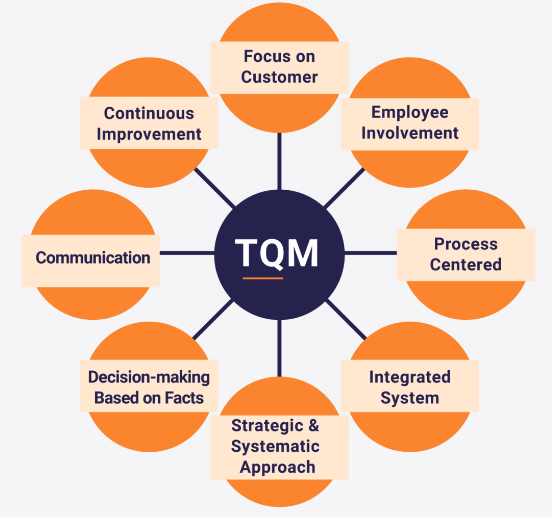Franchise operation management strategies are the secret weapons to streamline processes, maximize efficiency, and achieve business goals. Mastering these strategies is crucial for maintaining consistency across locations and staying ahead of the competition. In this blog post, we’ll dive into the essence of operations management, its key components, popular strategies, and real-life examples of successful implementation. As well as tackling the challenges that may arise along the way. Buckle up and let’s explore the world of franchise operation management strategies!
Key Takeaways
Operations management strategies are essential for franchises to meet their objectives and maximize efficiency.
Popular operation management strategies include Six Sigma and Total Quality Management (TQM).
Successful implementation of operations strategy requires assessment, action plan development, execution & monitoring, communication & training support, efficient resource utilization and balancing competing priorities.
The Essence of Operation Management Strategies

Operations management is a vital aspect of any business. It involves the efficient acquisition of materials and utilization of labor to meet customer expectations in a timely and cost-effective manner. One of the key operations management focuses for franchises is devising potent operations strategies that can maximize efficiency, achieve business objectives, and maintain consistency across all locations. Operations managers play a crucial role in implementing these strategies effectively. With each operations manager being responsible for their respective location.
Modern operations management encompasses a company’s full workflow, necessitating communication with clients, stakeholders, and business units. In a nutshell, operations management strategies act as a guiding force leading franchises to efficient processes, competitive edge, and attainment of immediate and strategic goals.
Key Components of Effective Franchise Operations Management

Effective franchise operations management involves four main components:
Planning
Organizing
Directing
Controlling
These components are essential for ensuring smooth functioning and profitability of the business.
These elements play a vital role in managing diverse aspects of the franchise. They ensure smooth operations, and ultimately propel its success.
Planning
Strategic planning is the backbone of franchise operations management. It sets the stage for establishing objectives, assigning resources, and creating systems for maximum efficiency. This involves forecasting operations, evaluating the organization’s existing facilities, and utilizing data to form conjectures regarding the organization’s future.
Planning lays a robust foundation for streamlined operations; guarantees effective resource allocation, and sets the franchise on the course to success.
Organizing
Organizing is about structuring the franchise’s operations, assigning tasks, and coordinating human resources to attain desired results. Having the right personnel assigned to specific tasks can enhance the quality of the end result.
Organizing plays a pivotal role in making sure that every business aspect, from supply chain management to customer service, works in unison and contributes to the company’s business model and overall triumph.
Directing
Directing entails leading and inspiring employees to carry out the franchise’s operations strategy proficiently. By guiding and motivating employees, the franchise can effectively implement its operations strategy, thereby ensuring the achievement of its objectives.
Cultivating a culture of teamwork, communication, and commitment among employees is pivotal for steering the franchise towards growth and prosperity.
Controlling

Controlling involves monitoring performance, identifying areas for improvement, and implementing necessary adjustments to ensure the franchise meets its objectives. Utilizing key performance indicators (KPIs) and other performance metrics, managers can make informed decisions and ensure that the franchise is on track to achieve its goals.
Controlling, which is a crucial aspect of quality control, helps maintain end product quality. It ensures the organization uses the most appropriate materials for a superior end result.
Popular Operation Management Strategies
Two widely used operation management strategies that have proven effective in driving continuous improvement and customer satisfaction are Six Sigma and Total Quality Management (TQM). Both methodologies focus on enhancing the quality of products and services. Enabling franchises to streamline operations, reduce costs, and stay ahead of the competition.
The application of these strategies enables businesses to enhance their processes, boost customer satisfaction, and gain a
Six Sigma

Six Sigma is a data-driven approach to reducing defects and improving processes in franchise operations. It was introduced by Bill Smith in 1986 and provides organizations with tools to enhance the capability of their business processes.
Six Sigma offers a range of benefits, including enhanced customer satisfaction, greater efficiency, and decreased costs. Its methodology consists of five phases: Define, Measure, Analyze, Improve, and Control (DMAIC). It utilizes specific tools and techniques to identify and eliminate defects in processes.
Total Quality Management (TQM)

Total Quality Management (TQM) is a holistic approach to enhancing the quality of products and services through continuous improvement and employee involvement. This management approach focuses on the continual enhancement of quality and customer satisfaction. It offers benefits such as increased efficiency and cost reductions.
By involving employees in the change process and providing training and support, TQM fosters a culture of adaptability and innovation that can propel a franchise towards success.
Aligning Franchise Operations Strategy with Business Goals
One of the crucial aspects of franchise operations management is aligning the operations strategy with the franchise’s mission, vision, and goals. This ensures that the franchise’s operations support and drive its overall business objectives.
Two key factors in achieving this alignment are strategic alignment and cross-functional collaboration, both of which are core competency strategies.
Strategic Alignment

Strategic alignment refers to ensuring that all facets of a business, such as corporate strategy, overall business strategy, market strategy, structure, resources, and culture are in harmony and support the overarching strategy of the organization. Aligning the operations strategy with the franchise’s mission, vision, and goals ensures optimal utilization of all resources to achieve the desired outcomes.
Besides driving growth and success, this alignment also enables the franchise to remain flexible and competitive amidst fluctuating market conditions.
Cross-functional Collaboration
Cross-functional collaboration is the process of uniting individuals from distinct departments or areas of expertise within an organization to collaborate on a project or address issues. Encouraging open dialogue, providing feedback and recognition, and creating a safe environment for experimentation and learning can all contribute to fostering a culture of collaboration.
By involving different departments such as marketing, operations, and design, the franchise can ensure that its operations strategy is effectively executed. All crucial aspects of the business receive appropriate attention and resources.
Implementing Franchise Operation Management Strategies
To actualize franchise operation management strategies, it’s crucial to commence by evaluating current operations, formulating an action plan, and executing and overseeing the strategy.
These steps ensure that the chosen operations strategy is effectively implemented, resulting in improved efficiency, customer satisfaction, and profitability.
Assessing Current Operations
Evaluating existing processes and identifying areas for improvement is the first step in implementing franchise operation management strategies. This includes conducting surveys, analyzing customer feedback, and observing operational performance to pinpoint any potential issues and solutions.
Assessing current operations allows franchises to clearly comprehend their strengths and weaknesses. Thus, laying a strong foundation for implementing their operations strategy.
Developing an Action Plan
Once the franchise has assessed its current operations, the next step is to develop an action plan outlining the steps required to implement the chosen operations strategy. This involves setting objectives, formulating business strategy, and allocating duties to team members.
Establishing a timeline for each step and monitoring progress ensures that the franchise stays on track to achieve its goals and makes necessary adjustments as needed.
Execution and Monitoring

With the action plan in place, the franchise can now focus on the execution and monitoring of its operations strategy. Implementing the plan requires tracking performance metrics, conducting regular reviews, and gathering feedback from customers and employees.
Through diligent progress tracking and informed decision-making, the franchise can ascertain effective execution of its operations strategy, leading to enhanced efficiency, customer satisfaction, and profitability.
Overcoming Challenges in Franchise Operations Management
Franchise operations management often presents challenges such as resistance to change, limited resources, and the need to balance competing priorities.
Through strategic communication, wise resource allocation, and clear prioritization, franchises can overcome these challenges and continue their journey to success.
Resistance to Change
Resistance to change can stem from various factors. These include fear of the unknown, lack of trust in leadership, and inadequate understanding of the change. To effectively address resistance to change, franchises should provide clear communication, involve personnel in the change process, offer training and support, and establish incentives for successful implementation.
Cultivating a culture of adaptability and innovation can help franchises overcome resistance to change and successfully roll out new strategies and processes.
Limited Resources
Limited resources can pose a challenge for franchise operations management. Franchises must make the most of the resources available to them to achieve their objectives. To address limited resources, franchises can explore strategies such as outsourcing, leveraging technology, and forming strategic partnerships.
These competitive strategies enable franchises to cut costs, boost efficiency, and fine-tune their operations, thereby ensuring the successful rollout of their operations strategy.
Balancing Competing Priorities
Balancing competing priorities is essential for effective resource allocation, strategic decision-making, and overall business success. Prioritizing and balancing varied aspects like:
customer satisfaction
cost management
employee engagement
growth opportunities
can help franchise operations optimize performance and achieve their goals.
This balance ensures that all crucial aspects of the business receive appropriate attention and resources. While also allowing the franchise to stay agile and competitive in the face of changing market conditions.
Case Study: Successful Implementation of Franchise Operation Management Strategy
7-Eleven Australia serves as a shining example of a successful implementation of a franchise operation management strategy. Through their effective management of franchised-based business, they have implemented various strategies and initiatives that have led to improved efficiency, customer satisfaction, and profitability.
Some of the strategies and initiatives implemented by 7-Eleven Australia include streamlining processes, enhancing customer service, and utilizing technology to increase efficiency. By centering on these areas, 7-Eleven Australia has successfully tackled challenges and driven success in their franchise operations, showcasing the efficacy of potent franchise operation management strategies.
Summary
In conclusion, franchise operation management strategies are indispensable tools for driving business success. By understanding the essence of operations management, implementing key components, and aligning operations strategy with business goals, franchises can overcome challenges and achieve their objectives. The case study of 7-Eleven Australia serves as a testament to the power of effective franchise operation management strategies. It’s time to unleash the potential of your franchise by mastering these strategies and steering your business towards growth and success.
Frequently Asked Questions
What are the 6 strategies in operation management?
Operational performance can be improved with the use of six strategies, including investing in the right technology, embracing automation, providing continuous training and upskilling opportunities, iterating, measuring and repeating, and measuring the right metrics.
What are the 5 P’s of operations management?
The 5 P’s of operations management are Plan, Process, People, Possessions and Profits.
What are the key components of effective franchise operations management?
Effective franchise operations management involves planning, organizing, directing, and controlling to ensure smooth functioning and profitability.
How can franchise operations align their strategy with business goals?
Franchise operations should ensure their strategy is strategically aligned and involves cross-functional collaboration in order to support business goals.


